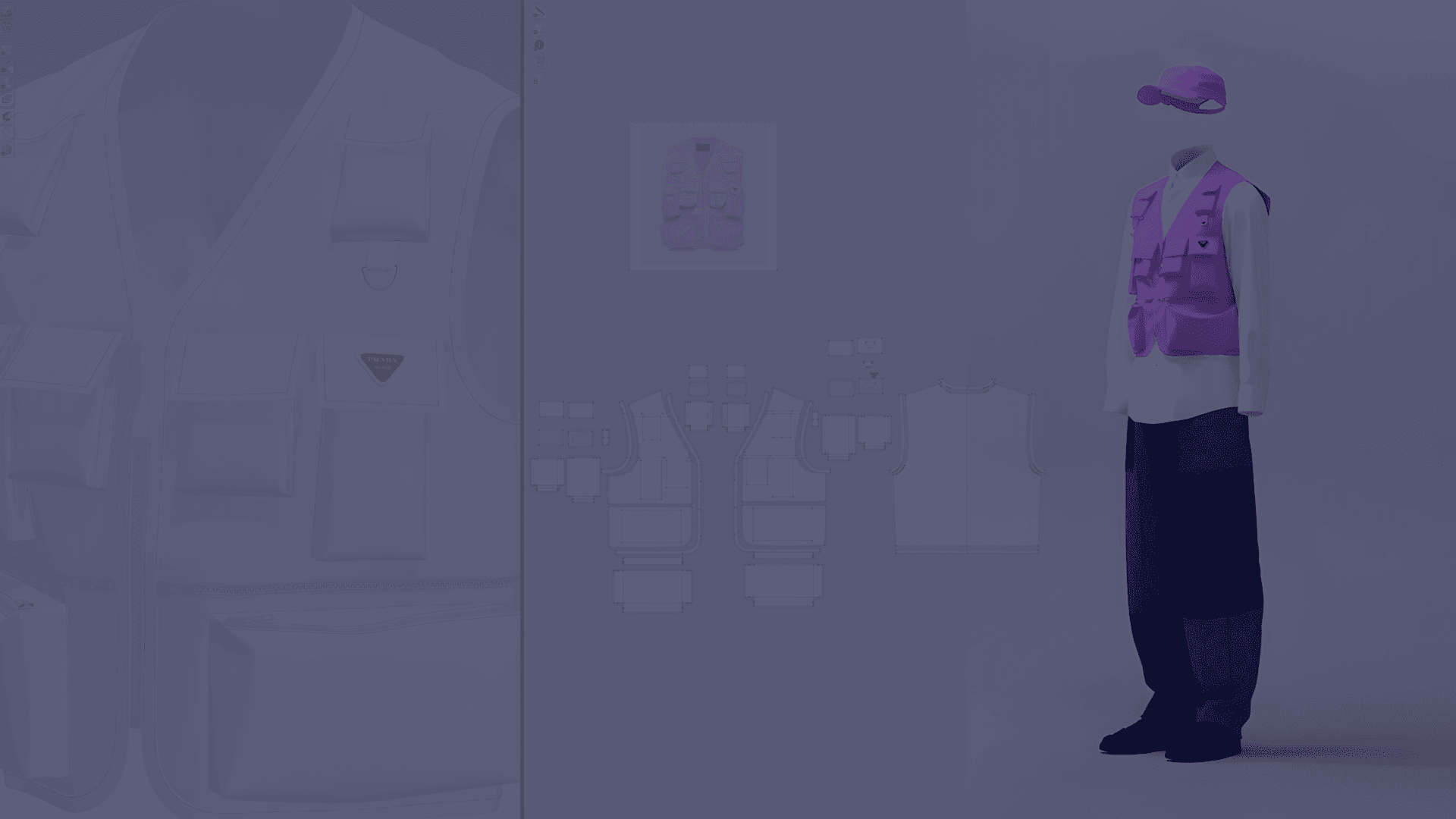The fashion industry is rapidly embracing 3D technology, integrating it into every aspect of its operations—from design and manufacturing to marketing and e-commerce. What was once a complex and time-consuming process, requiring extensive photogrammetry setups, can now be achieved with just a smartphone, a lightbox, and user-friendly software like Adobe’s Substance 3D. This shift is driven by the increasing demand for highly detailed 3D models, which are essential for creating immersive experiences in virtual spaces and enhancing online shopping journeys.
Why Brands Are Investing in 3D Assets
Brands are creating 3D assets to stay competitive in a market that is increasingly digital and consumer-driven. High-quality 3D models enable companies to:
Enhance Online Shopping
3D assets provide a more interactive and engaging shopping experience, allowing customers to view products from all angles and make more informed purchasing decisions. With traditional online shopping experiences, many consumers abandon their shopping carts due to limited interaction, with a staggering 73% of potential purchases never reaching checkout. By incorporating 3D models, brands can create a richer, more tactile experience that helps convert these hesitations into purchases. Currently, only 3 out of 10 shoppers finalize their purchase, highlighting the need for more engaging online experiences.
Streamline Design and Production
By creating digital prototypes, brands can eliminate the need for physical samples, speeding up the design process and reducing costs.This approach also allows brands to validate products against market preferences early on, ensuring only the most desirable products reach production. By eliminating unnecessary production, companies can save on resources and reduce waste, aligning with sustainable practices.
Expand into Virtual Spaces
As fashion ventures into virtual worlds, from video games and augmented reality (AR) experiences, the need for realistic 3D models becomes crucial. Statistics show that interactions in virtual try-ons can boost conversion rates by up to 200% and reduce returns by around 40%. This not only enhances the shopping experience but also supports the brand's bottom line by decreasing the costs associated with returns.
Integrate into Marketing
Brands are leveraging 3D assets to create immersive marketing campaigns that captivate audiences, particularly Gen Z. These assets can be used to design interactive product pages or virtual try-on filters on websites and social media. Such campaigns have the potential to go viral, driving significant engagement and brand awareness. For instance, searches for "Jacquemus bags that cross Paris" skyrocketed by 900% in just one day, highlighting the powerful impact of a well-executed 3D marketing strategy. These viral campaigns can attract millions of views, turning brand interaction into a dynamic, shareable experience that resonates deeply with younger consumers.

Examples of Brands Leading the Way
Adidas is at the forefront of the 3D revolution, using digital tools to design products faster and enhance the shopping experience. More than €5 billion of Adidas’ sales come from products created with 3D design, and the company is scaling this approach to meet its future targets.

Coach utilizes 3D assets to create detailed mockups of their products, like the Tabby Bag, which cannot be fully visualized through traditional photography. These assets are not only used for design but also for marketing, as seen in their surreal 3D Instagram posts.

How Brands Are Creating 3D Assets
The process of creating 3D assets has become significantly more accessible, thanks to advancements in technology. Brands can now capture detailed 3D models using simple tools and software. Here’s how it’s done:
Photogrammetry
Brands like Adidas use software that assembles a series of photos taken from different angles into a detailed 3D model. This process, which used to take hours, can now be completed in about 30 minutes.
3D Scanners
Companies like Covision Media provide powerful 3D scanners that capture thousands of images to create highly detailed models in just a few hours. These scanners measure light reflection to produce realistic textures and details.
3D Modeling
Involves manually creating a 3D model using software, ideal for conceptual designs.

Wearify’s 3D Asset Service
At Wearify, we offer a comprehensive service for creating 3D assets and integrating them into virtual try-on experiences. Our solution simplifies the onboarding process for brands, allowing them to quickly adopt and leverage 3D technology to enhance customer engagement and reduce return rates.
A Guide to Transitioning into 3D
Assess Your Needs
Determine which products will benefit most from 3D modeling.
Choose the Right Tools
Depending on your budget and needs, select the appropriate software and hardware for 3D creation.
Start with a Pilot Project
Digitize a few products and test them in your e-commerce platform or marketing campaigns.
Train Your Team
Ensure your team is skilled in using 3D tools, or partner with a service provider like Wearify to manage the process for you.
Expand and Innovate
Once you’ve mastered the basics, expand your 3D catalog and explore new applications, such as AR try-ons or virtual showrooms.
Conclusion
Transitioning to 3D technology can seem daunting, but with the right approach and tools, it becomes an achievable and rewarding investment. As the fashion industry continues to evolve, those who embrace 3D assets will be well-positioned to lead the future of digital fashion.



